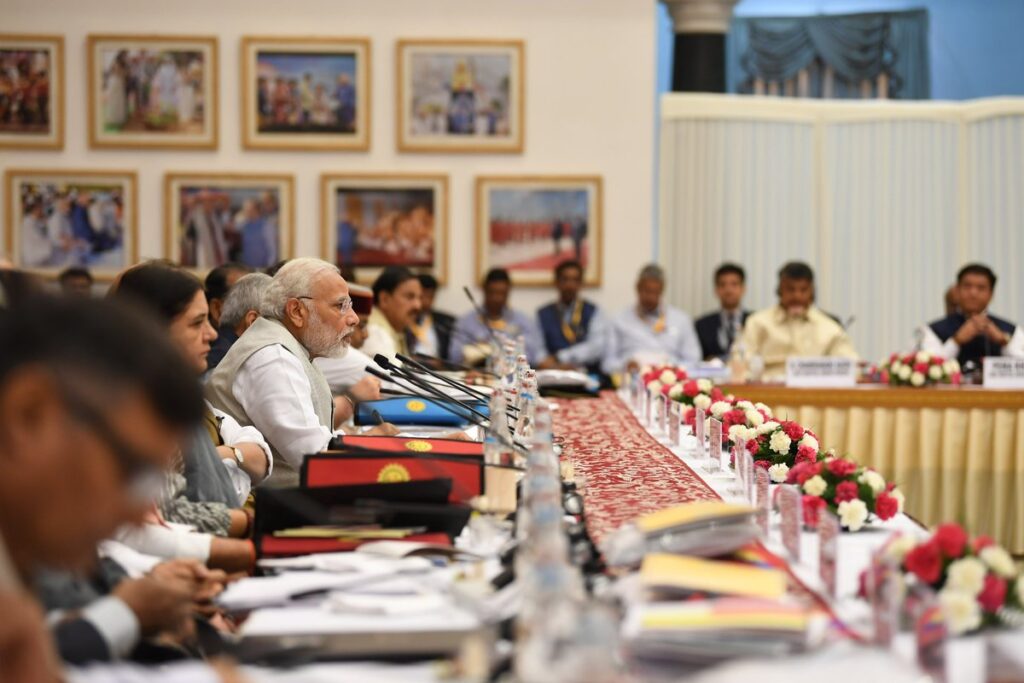Prime Minister Narendra Modi, in a significant address at the latest NITI Aayog meeting, reiterated his ambitious vision of transforming India’s economic landscape through the “One State, One Global Destination” initiative. This concept aims to position each Indian state as a distinct global hub, capitalizing on its unique economic strengths to attract foreign investment, enhance trade, and boost regional development.
In his speech, PM Modi emphasized the critical role of states in India’s journey towards becoming a $5 trillion economy. Highlighting the importance of competitive federalism, he urged state governments to focus on developing specialized clusters and industries that align with their inherent resources and cultural heritage. The PM’s call to action seeks to foster innovation, improve infrastructure, and create a conducive environment for both domestic and international investors.
The “One State, One Global Destination” strategy aligns closely with India’s broader goal of self-reliance and global economic integration. By promoting state-specific expertise—ranging from technology in Karnataka, manufacturing in Gujarat, to tourism in Rajasthan—Modi’s approach encourages states to carve out niche identities on the global map. This, in turn, is expected to enhance employment opportunities, drive exports, and uplift regional economies.
NITI Aayog, the government’s premier policy think tank, plays a pivotal role in this vision by facilitating coordination between the central government and states. The meeting underscored the importance of data-driven governance, innovative policy reforms, and digital infrastructure development to support this vision. The PM urged the Aayog to assist states in harnessing technology and public-private partnerships to accelerate progress.
Experts observing the meet suggest that this initiative is more than just a slogan. It signals a paradigm shift in India’s economic policy framework—moving from a uniform approach to a customized growth model. With states empowered to leverage their comparative advantages, India could witness increased intra-national competition, fostering efficiency and creativity.
Critics, however, caution about potential disparities that may arise between states with varied levels of development. The government, they argue, must ensure that while promoting global destinations, inclusive growth and equitable resource distribution remain central to policy implementation.
The meeting also highlighted ongoing efforts to simplify business regulations and improve the ease of doing business, key factors that underpin the global destination concept. PM Modi stressed that attracting global capital requires seamless processes, transparent governance, and robust infrastructure.
As India stands at the crossroads of economic transformation, the “One State, One Global Destination” vision encapsulates a bold attempt to harness the country’s diverse strengths. If effectively implemented, it promises to elevate India’s stature in the global economy while driving sustainable regional growth.
Conclusion:
PM Narendra Modi’s address at the NITI Aayog meeting reaffirms the government’s commitment to decentralized economic development through the “One State, One Global Destination” initiative. By encouraging states to develop unique global identities, the initiative aims to boost investment, innovation, and employment. The success of this vision hinges on strategic policy support, infrastructure development, and inclusive growth, potentially marking a new chapter in India’s economic narrative.



